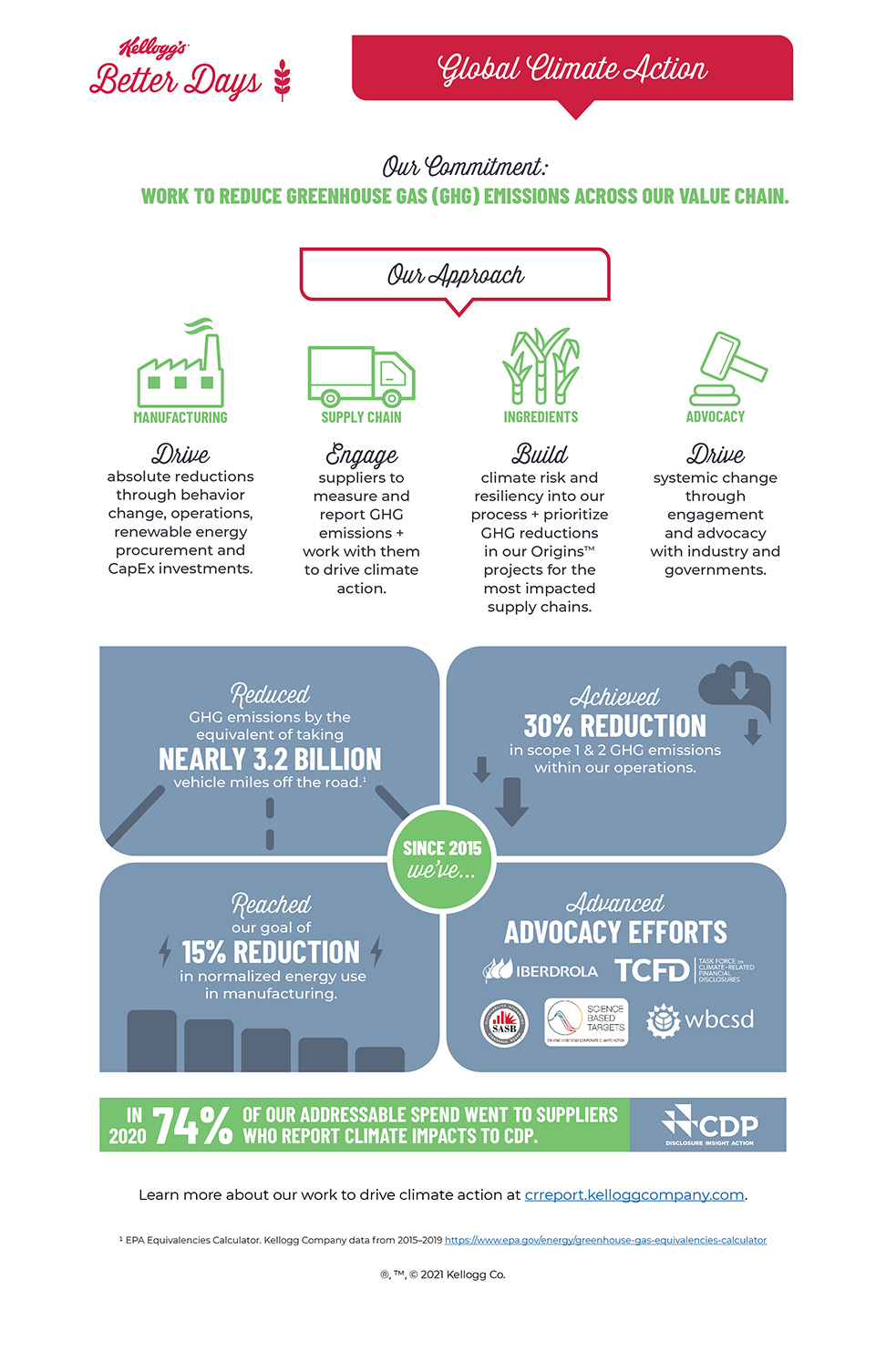Taking action to lessen the impact of climate change
Working across our supply chain to meet science-based targets
Climate Action
Ever since the industrial revolution, when the world started relying on fossil fuels to power production, the planet has been heating up.
Kellogg has been committed to working on reducing its impact on climate. In fact, our company was one of the first to set science-based targets to help do so across our value chain. Since then, we’ve also joined global corporate renewable energy initiative RE100 and committed to 100% renewable energy sources in our operations by 2050, and joined in important climate coalitions like “We Are Still In” that e high-level action on climate change.
To achieve these goals, we’re leveraging our global scale and voice to drive climate action and nature-based solutions by addressing climate action across our supply chain:
- Since 2015, Kellogg has reduced scope 1 (direct) & scope 2 (indirect) greenhouse gas (GHG) absolute emissions[1] in its manufacturing plants and offices by 30%, and exceeded one year ahead of schedule its goal to reduce GHG emissions by 15% per pound of food produced in our manufacturing plants.
- We’re working with our supply chain by engaging direct suppliers to measure and report their GHG emissions and we’re working with our highest-emitting suppliers to encourage improvements. Through 20, 74% of our addressable spend went to suppliers who report climate impacts to CDP, a global non-profit organization that is widely considered as the gold standard of environmental reporting.
- To mitigate GHG emissions on farms, we’re supporting farmers and workers as they adopt sustainable and regenerative agriculture practices through our Kellogg’s Origins™ program. To date, we’ve supported more than 440,000 farmers on five continents.
- Beyond our footprint, we’re driving change through transparency and advocacy by engaging with industry and governments. We also share information on our climate action annually in our milestones report and offer our lessons learned through consortiums, trainings and other events.
[1] Scope 1 emissions are direct emissions from owned sources; Scope 2 emissions are from the generation of purchased energy.
Kellogg believes that transparency and advocacy will help drive the change we need to protect our planet. That’s why Kellogg joined the Task Force on Climate-Related Financial Disclosures and is a signatory of the United Nations Global Compact’s Uniting Business and Governments to Recover Better initiative calling on companies to align their COVID-19 economic aid and recovery efforts with the latest climate science. Kellogg is also a signatory of “We Are Still In,” a broad coalition of nearly 4,000 actors established in support of the Paris Agreement. It also regularly shares lessons learned and identifies new ideas at consortiums, trainings and other events.
We’ll continue aggressively working across our business and value chain to take climate-appropriate actions that protect our environment.
 |

